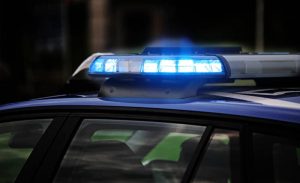In a published decision dated December 31, 2020, the North Carolina Court of Appeals again weighs in on DWI  checkpoints in North Carolina.
checkpoints in North Carolina.
State v. Cobb (North Carolina vs. Deshandra Cobb) sets forth the legal standards and considerations associated with roadblocks, sobriety checkpoints, and DWI checkpoints in North Carolina.
The Honorable Donna Stroud, who has recently been appointed Chief Judge of NC COA dissents from the majority opinion granting in part the Defendant’s appeal, remanding matter.
Given the split decision of the Court, one would assume the NC Supreme Court will take the matter up for consideration – Danny Glover, OBX DWI Defense Lawyer
State v. Cobb stands in part for the precept that checkpoints must be constitutional, even if otherwise supported by authorization under the North Carolina DWI laws and specifically chapter 20-16.3A.
Why careful attention to detail matters
DWI checkpoints, particularly those associated with Motions to Suppress and Motions to Dismiss require careful analysis of the surrounding circumstances behind the checking station.
The Court of Appeals in State v. Cobb vacates the Superior Court Order denying a Motion to Suppress filed by the defendant and further sends the matter back to Harnett County NC for further proceedings.
Are Drunk Driving Checkpoints in North Carolina Legal?
While the general public may refer to such offenses as “drunk driving,” the law in North Carolina relating to DWI and/or DUI (driving under the influence) is technically referred to as “impaired driving” in N.C.G.S. 20-138.1.
You do not have to be drunk.
A violation of the law may include allegations that the accused has consumed alcohol, drugs, and even prescription medications.
It doesn’t really matter a whole lot whether you call it DWI or DUI, the offense of impaired driving considers whether your mental or physical faculties are ‘appreciably impaired’ while driving – Danny Glover, Criminal Defense OBX
In a series of opinions involving DWI checkpoints and DWI checking stations in North Carolina, the courts have made clear there must be a valid Primary Programmatic Purpose.
The trial court, the judge ruling on a Motion to Suppress in Superior Court, rules as a matter of law whether or not the DWI checkpoint, as applied in the case at hand, meets 4th Amendment Constitutional requirements.
DWI checkpoints, roadblocks, other traffic safety “checking stations,” including vehicle registration and license checks, are deemed to be seizures under the law.
As such, a seizure of either the accused and/or the vehicle (seizure does not necessarily require an arrest) may trigger certain constitutional protections afforded under the United States Constitution (4th Amendment), and/or Article I of the North Carolina State Constitution (Chapter 20, Article I NC Constitution).
What is Driving While Impaired?
Even if authorized under the NC DWI laws as set forth in Chapter 20 (motor vehicle offenses/laws), impaired driving checkpoints must still be Constitutional under both North Carolina and US Constitution
It can be a bit complex, given big-picture the analysis considers both the Primary Programmatic Purpose and reasonable application of the checkpoint under the Constitution – Danny Glover, OBX Attorney
What is the Primary Programmatic Purpose?
Checking stations and roadblocks cannot be for “general public safety and crime control.”
What happens when you get a DWI in NC?
Valid Primary Programmatic Purposes may include things like DWI enforcement, NCDMV license checks (or other validly issued driver’s license from another state), and vehicle registration compliance issues.
Checkpoints where the primary purpose is to find and investigate any and all traffic violations or criminal violations may not meet Constitutional muster – Danny Glover, DWI Lawyer OBX NC
The Court first analyzes the Primary Programmatic Purpose. If that is found wanting, a Motion to Suppress may be deemed prudent and therefore granted.
Findings of Fact the Court makes, relative to the testimony presented, are deemed binding unless challenged on appeal.
Can I get a Driving Privilege?
The Court’s rulings of law are subject to de novo review, allowing the appellate Court(s) to reverse a legal ruling if it would come to a different conclusion.
The inquiry does not end there.
In the event the Court finds a lawful or valid Programmatic Purpose, it thereafter reviews the facts of the individual case, confirming the checkpoint is valid under the 4th Amendment to the US Constitution and the NC Constitution in Article I.
Even if authorized pursuant to N.C.G.S. 20-16.3A or other Chapter 20 Motor Vehicle Statute, DWI checkpoints must be reasonable in their application.
A constitutional analysis is fact and case-specific. The Court looks both into the programmatic purpose and whether the checkpoint was reasonable given the stated public safety issue or concern – Danny Glover, Outer Banks DWI Lawyer
Outer Banks Criminal Defense Lawyer – Danny Glover Law Firm
If you have been arrested or charged with DWI on the Outer Banks, we think it’s a good idea to retain legal counsel with substantial experience in the courtroom.
Is DWI a felony in North Carolina?
The individual nature and circumstances of DWI charges, and the consequences if convicted, justify an exhaustive review of the checking station plan, the implementation of the DWI checkpoint, and whether both statutory and constitutional precepts comport with the NC DWI laws.
Legal consultations for criminal charges, including DWI allegations, are protected by the “attorney-client privilege” and are therefore confidential.
You may email Danny Glover Jr at OBX DWI Lawyer or call to schedule a consultation at: 252-299-5300
 North Carolina Criminal Law Updates
North Carolina Criminal Law Updates





